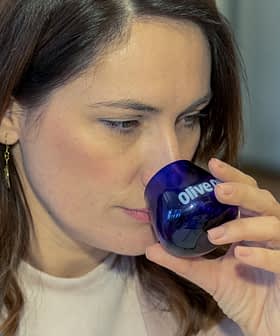A new study suggests that adhering to the Mediterranean diet might curtail the worst episodes connected to attention deficit hyperactivity disorder (ADHD).
Research out of Iran shows that children who have been diagnosed with ADHD might find in the extra virgin olive oil-centered eating program a precious ally.
Higher adherence to a Mediterranean diet containing vegetables, legumes, fruits and nuts, grains, and fish could decrease the odds of ADHD in primary school children.
According to the Centers for Disease Control (CDC), more than six million children under 17 years of age are diagnosed with ADHD in the United States each year.
ADHD is a childhood neurodevelopmental disorder, which, in many cases, lasts into adulthood. ADHD patients often have trouble focusing and paying attention, might be subject to uncontrollable impulsive behaviors, enter a state of extreme activeness and take unnecessary risks.
See Also:Health NewsThey can squirm, fidget and not get along with others. Similar epidemiological data are found in many other countries.
The study was published in Clinical Nutrition by a team of nutrition researchers at Shahid Sadughi University of Medical Sciences in Yazd, Iran. They investigated the association between adherence to the MedDiet and odds of ADHD in Iranian children.
The researchers analyzed the nutritional behaviors and mental conditions of 360 children aged 7 to 13 years old. One hundred twenty of them, diagnosed with ADHD, were assigned to a first group, while the others were part of two control groups.
To proceed with the screening and verify the ADHD diagnosis, scientists used the procedures described by the “Diagnostic and statistical manual of mental disorders” published by the American Psychiatric Association.
“A validated food frequency questionnaire was used to measure food intake,” the research reads, while “the association of adherence to the Mediterranean diet with the odds ratio of ADHD [has been] examined by logistic regression.”
The researchers adjusted the data for “potential confounders,” including parents’ educational level, family economic status and ADHD history, physical activity and energy intake.
The results showed that the children in the highest tertile of adherence to MedDiet had lower odds of having ADHD when compared to the children in the lowest.
“In addition, an association was observed between increasing trend adherence to Mediterranean diet and decrease odds of ADHD after full adjustments,” the scientists wrote.
In a recent paper published by Scientific Reports, a research team from Wageningen University in the Netherlands confirmed the role of food intake in addressing ADHD insurgence.
See Also:Mediterranean Diet Linked With Long-Term Health Benefits for TeenagersIn their study, conducted on boys of 8 to 10 years of age, the scientists examined the results of dietary limitation and interventions, some focusing on introducing olive oil, with results showing reduced ADHD symptoms.
Even with their different approach to a broader understanding of ADHD insurgence, both studies confirm previous research, which had also associated reduced ADHD with Mediterranean diet adherence.
Research conducted in 2017 in Spain on 120 children between 6 and 16 years has shown that ADHD-diagnosed youngsters can significantly benefit from a healthy diet.
More specifically, the researchers from the University of Barcelona found that those participants who did not closely adhere to MedDiet had a three to seven times greater risk of ADHD.
Examining that study’s results, Michael Wald, director of longevity services at Integrated Nutrition in Mount Kisco, New York, told Olive Oil Times that “ADHD is known to involve abnormalities in the cell membrane structure of brain neurons.”
“These cells are partly composed of unsaturated fat that includes omega‑3 fatty acids, which provide neuro-protection and afford the brain and nervous system the ability to self-correct,” he added. “The MedDiet is particularly high in healthy fat, as it includes the omega‑3 fatty acids from fish, along with the monounsaturated fatty acids found in avocados and olive oil.”
“These fats become incorporated into the brains of those with ADHD, potentially improving memory, attention, mood, behavior and even learning,” Wald concluded.
Nutrition’s role in curtailing ADHD is seen as a priority by researchers. The scientific team of the Wageningen University specified in their paper how “generally prescribed drugs for ADHD are not effective 24 hours per day and can cause sleeping problems, decreased appetite, headache and stomach-ache, frequently resulting in discontinuation of the medication.”
“Therefore, novel treatments, preferably aiming at the underlying triggers or causes of ADHD, are needed,” they added.
The Iranian research team has also stressed the growing evidence of how a healthy nutrition regimen can significantly address ADHD.
“We found that higher adherence to a Mediterranean diet containing vegetables, legumes, fruits and nuts, grains, and fish could decrease the odds of ADHD in primary school children. Further studies are suggested to approve our vision,” the researchers concluded.








